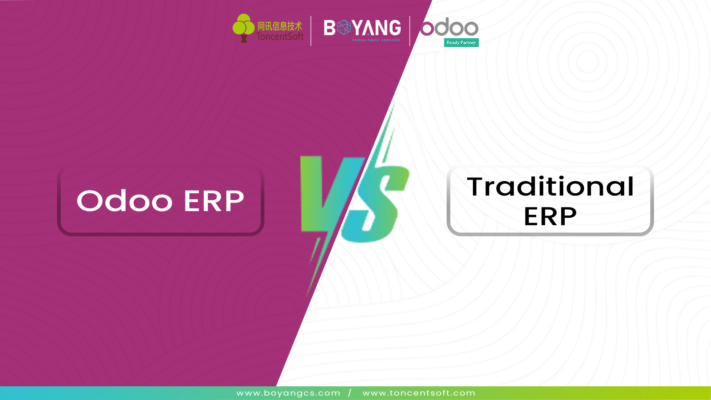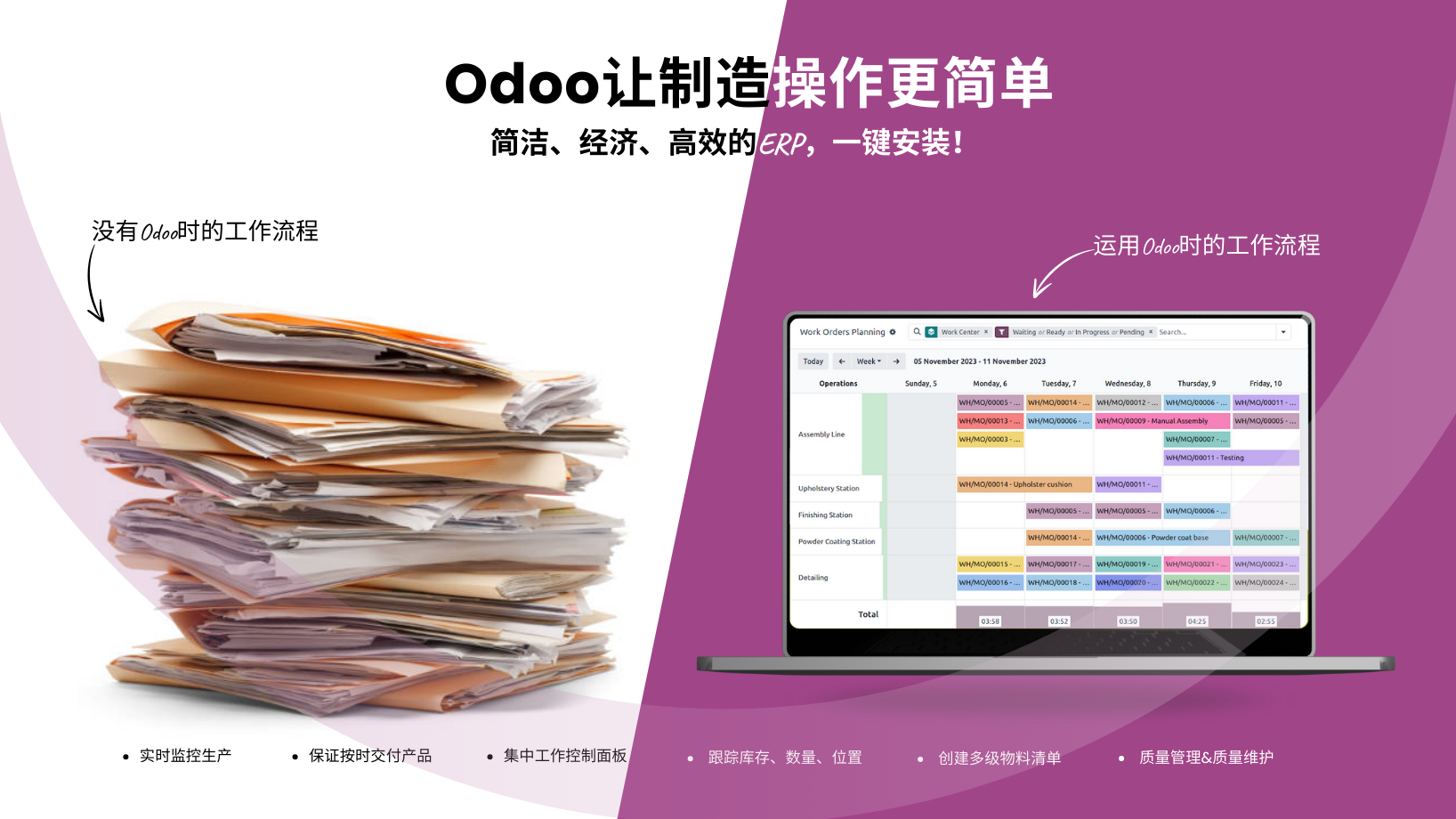
When it comes to ERP (Enterprise Resource Planning) systems, manufacturing business got so many options. However, one ERP solution has been making waves. Odoo the best open-source ERP in Hong Kong, China and worldwide. Odoo software is gaining popularity for its modularity, cost-effectiveness, and user-friendliness, setting it apart from traditional ERP systems. Here’s a closer look at why Odoo is different than traditional ERP systems and why businesses are switching to Odoo software.
Odoo ERP Vs. Traditional ERP
1. Ease of Use
One of the key advantages of Odoo is its user-friendly interface. Unlike complex traditional ERP systems that can feel overwhelming for new users, Odoo simple interface is designed for both tech-savvy and non-technical users alike. This user-friendliness interface reduces the learning curve and makes onboarding faster for new team members, which saves time and reduces the need for extensive training.
2. Modular Structure
Traditional ERPs often come as a large, single system that includes a set of fixed functionalities. Odoo, on the other hand, is modular, which means businesses can start with core functions and add additional modules as they grow. This allows for a tailored approach to ERP implementation that’s flexible and scalable.
For instance, Odoo offers separate modules for processes like CRM, Manufacturing Sales Management, Inventory, HRM, Accounting, and more. So if you need to add a new functionality down the line, Odoo makes it easy to do so without a full system overhaul.
We’ve helped manufacturing company to simplify operations and drive growth using Odoo Manufacturing ERP.
3. Open-Source Advantage
Odoo’s open-source nature gives it a major edge over traditional ERP systems. Being open-source means that users can access the source code and customize the platform to meet specific needs. This flexibility is hard to achieve with proprietary ERP systems, which often come with strict limitations.
The open-source community also actively contributes to Odoo, adding new features, sharing customizations, and improving the platform. This collaborative environment ensures Odoo’s continuous development and keeps it updated with new technologies and business trends.
4. Cost Savings
Cost is a significant consideration for any business when implementing an ERP system. Traditional ERPs can have high licensing fees, maintenance costs, and other hidden expenses. Odoo’s open-source license eliminates many of these costs, making it an affordable choice—especially for small and medium-sized enterprises (SMEs). By reducing the total cost of ownership, Odoo makes ERP systems accessible to businesses that may not have the budget for high-cost traditional ERP software.
5. Integration Capabilities
Odoo seamlessly integrates with various business systems, software, and applications, making it easy for companies to adopt without requiring a complete replacement of their current IT infrastructure. This integration capability is one of Odoo’s biggest advantages over traditional ERP systems, which often need extensive customization to work with existing systems.
Odoo’s flexibility in integration allows businesses to streamline their processes and enhance efficiency without the hassle of managing multiple disconnected systems.
6. Fast Implementation
Traditional ERPs can take months or even years to implement, but Odoo’s modular and user-friendly nature means it can be up and running in a much shorter timeframe. Fast implementation reduces downtime, enabling businesses to start benefiting from their ERP investments sooner, which means a quicker ROI.
7. Regular Updates and Improvements
Odoo is frequently updated with new features, bug fixes, and improvements. This commitment to keeping the software fresh and relevant is another standout feature. Unlike many traditional ERPs, which may only get occasional updates, Odoo ensures that users always have access to the latest technologies and tools.
8. Strong Community and Support
Odoo has a strong and active community that constantly contributes to the platform. This community provides extensive support, shares best practices, and offers custom modules that can address specific needs. The Odoo Community Association (OCA) unites a large portion of the Odoo community, fostering collaboration and support.
For businesses, this community-driven support means there are plenty of resources available, whether they need help troubleshooting or want to explore new functionalities. Traditional ERP systems often lack this level of open-source community engagement, which can make support more challenging and costly.
Boyang is official Odoo Partner, 立即聯繫我們, for FREE product demo and Odoo ERP implementation.
Odoo for Manufacturing
Odoo ERP is a best solution for manufacturing businesses, simplifying production management and enhancing productivity. With Odoo, manufacturers can handle everything from Bills of Materials (BoMs) and work orders to quality control and maintenance, ensuring a smooth, efficient production line. By optimizing each step of the production process, Odoo helps manufacturers boost quality with sales, improve operations, and drive business growth. This adaptability is a powerful reason why Odoo is recognized as a top choice for manufacturing industries seeking ERP solutions.
Wrapping Up
Odoo’s flexibility, cost-efficiency, and user-friendly design make it a unique and best ERP software for business of all sizes. With scalability, ease of customization, and an ever-growing community, Odoo is redefining ERP for the modern business world. Whether you’re a small business looking to streamline processes or a larger organization seeking efficient integration across multiple departments, Odoo provides a comprehensive solution without the constraints of traditional ERP systems.



